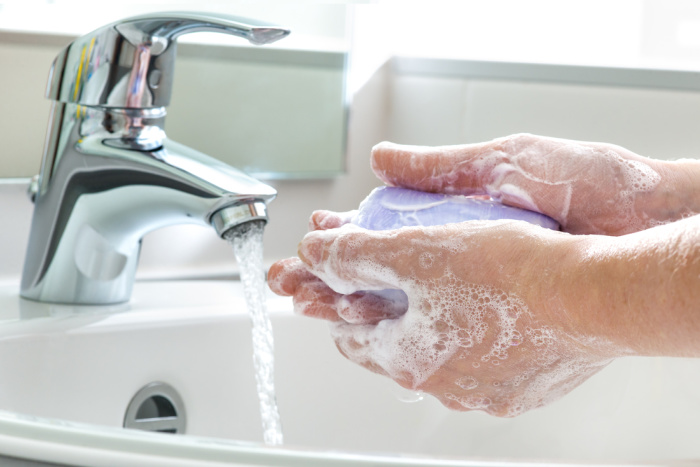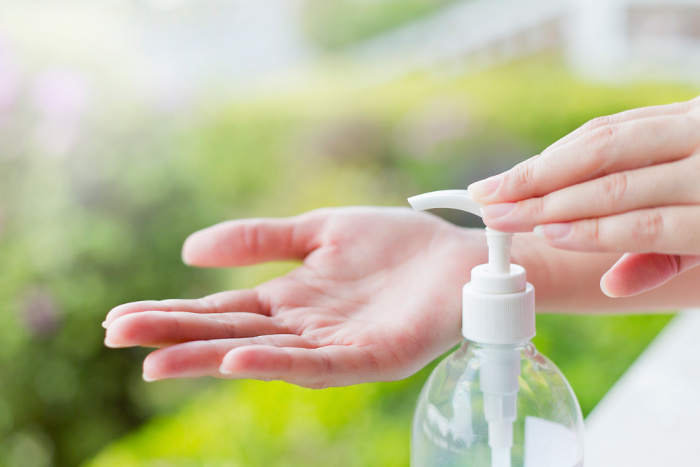
Have you ever been to the bathroom and realized someone didn’t wash their hands as they walked out? Don’t be that person! Never leave someone wondering whether or not you washed your hands.
You may be wondering why you should wash your hands often. Please refer to the CDC for accurate information on COVID-19 or other illnesses/diseases.
Washing your hands should be the number one thing you do most often, especially for healthy living. It is the best way to prevent germs from spreading.
When germs aren’t killed by hand washing, they live in other places, such as countertops, kitchen tables, and bathrooms.
Germs can live on surfaces and in the food we eat. The global rate of people washing their hands after using the bathroom is 19%. That’s a high number as far as a statistic.
Why You Should Wash Your Hands Often
Have you ever wondered why you should wash your hands? We know it kills germs, but there are many other reasons as well.
There is actual science behind washing your hands. This is one of the best ways to keep yourself from getting sick.
Removes Germs From Hands
The most apparent reason for washing your hands often is that it removes germs. Nothing else can remove germs from your hands like washing them.
Hand sanitizer works, but it’s not the best way to remove germs. If you don’t wash your hands, this is what can happen.
Germs Get Into Food and Drinks
When germs are not killed, they multiply. When they multiply, they get into your food and drinks. If you prepare food, the germs will get into the food, contaminating them.
In the right circumstances, germs can multiply in food and drinks, making you sicker.
Germs Can Transfer
When hands are not washed, germs can be transferred to other things and live on almost every surface.
Germs then move from one person to another, and the cycle continues of people getting sick.
Saves Your Life
While it may sound dramatic that handwashing saves your life, it’s not. According to the CDC, “About 1.8 million children under the age of 5 die each year from diarrheal diseases and pneumonia, the top two killers of young children around the world.” source.
Battles Antibiotic Resistance
If you haven’t been reading up on antibiotic resistance, it’s time to do so. When you wash your hands, you are battling against antibiotic resistance.
When you wash your hands, you are preventing sickness. Since there is an overuse of antibiotics in the world, antibiotic resistance is becoming more and more of a real thing. Which Antibiotics Work Best For Which Infection
What Happens When You Wash Your Hands?
When you take the time to wash your hands, you are doing several things:
- You are helping keep germs from spreading.
- You are keeping yourself from getting sick.
- You are keeping others from getting sick.
- Removing germs through handwashing helps reduce the spread of diarrhea.
- Removing germs through handwashing helps reduce the spread of respiratory infections.
- When you wash your hands, you’re keeping those who are immune-compromised from getting sick from certain germs.
When Should You Wash Your Hands?
Now that you know WHY you should wash your hands, you may be wondering when you should wash your hands. Here are some instances when you should wash your hands:
- Before prepping food or cooking.
- Before eating and after eating.
- Before and after caring for someone who is sick.
- After using the bathroom.
- After touching an animal.
- After touching garbage.
- Before and after doing first aid on someone.
- After anything pet-related.
- After cleaning.
- Before and after caring for someone in diapers.
When Should Hand Sanitizer Be Used?

I use hand sanitizer all the time. However, you should always wash your hands if you’re able. Hand sanitizer isn’t always equal. Look at the product label to ensure it contains at least 60% alcohol.
It’s important to note that hand sanitizer doesn’t get rid of all germs. It’s a great alternative when soap and water are unavailable for traditional hand washing.
I keep a small hand sanitizer container with a pump in my car, and Mark and I use it whenever we go somewhere and get back in the car.
This cuts down on stuff our hands may have picked up unknowingly.
How to Wash Your Hands
Have you considered how to wash your hands? While most of us know how to wash our hands, I wanted to give you the quick rundown recommended by the CDC.
Step One:
Turn on the water and get your hands wet with cold or warm water.
Step Two:
Grab some soap and lather your hands together. Make sure to clean the front and back of your hands, and wash in between those fingers!
Step Three:
Wash your hands for at least 20 seconds. Make sure you do it for at least the whole 20 seconds. You can set a timer if you need to.
Step Four:
Rinse your hands well. When you are done, you can dry them with a clean towel. Please never share a hand towel in the bathroom.
If possible, have your own. I use paper towels in my bathroom.
Stock Your Home Pharmacy
- Electrolyte Drip Drop
- Cough Lozenges
- Imodium
- Aspirin
- Tylenol
- Ibuprofen
- Vicks VapoRub
- Bag Balm
- Dr. Bronner’s Soap
- Hand Sanitizer
- Tooth Brushes and Toothpaste
- Orajel
- Benadryl
- Advil
- First Aid Supplies
- Survival Medical Handbook
- Non-latex Gloves
- Antibacterial Soap
- Bars of Soap
- Emergen-C
- Lip Balm
- Nasal Spray
- Vitamins
- Essential Oils
- Allergy Medications
- Infant Fever Reducer Medications
- Child Fever Reducer Medications
Final Word
Proper handwashing is critical. It prevents you from getting germs and others from getting them from you. The next time you’re tempted not to wash your hands, think about these tips and WHY washing your hands is such a good idea. May God bless this world, Linda
10 Cleaning Tips For The Minimalist
How To Love Cleaning Bathrooms Every Week
Copyright Images: Washing Hands Depositphotos_28423197_s-2019, Hand Sanitizer Depositphotos_76447447_s-2019
The post Why You Should Wash Your Hands Often appeared first on Food Storage Moms.
from Food Storage Moms
No comments:
Post a Comment